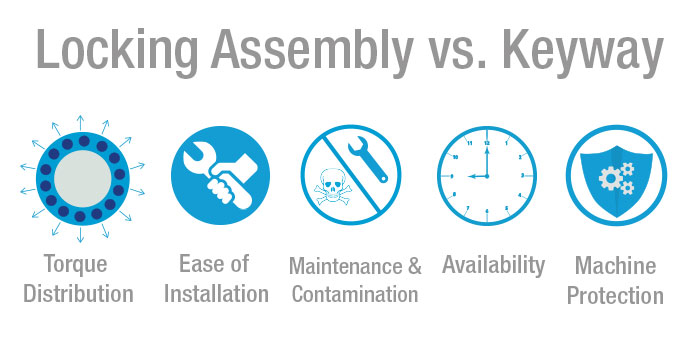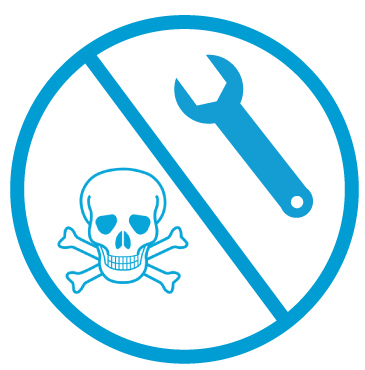Top 5 reasons to fit a Locking Assembly rather than a Keyway

The traditional way of connecting shaft to shaft was by bored and keyed connection. However, locking assemblies have now taken over as the preferred method of connection, making bored and keyed outdated.
Locking assemblies are commonly used to connect shafts together, chain wheels, gear mechanisms, pulleys and belt drums in many applications.
Locking assemblies take a very different approach to torque transmission. They feature double-tapered thrust rings that, when tightened, expand radially to create a compression fit between a shaft and its mating component, locking them together without a keyway.
 1. Even distribution of torque
1. Even distribution of torque
Unlike a keyway, which concentrate stresses along a single line of contact, locking assemblies distribute torque-transmission stresses evenly over 360 degrees of contact. This uniform stress distribution eliminates the wear and maintenance costs associated with keyways in reversing applications.
 2. Easy mounting
2. Easy mounting
The mounting of the ‘hub’ is simpler, due to only a parallel bore being required with no expensive tooling for a keyway. Precisely aligning locking assemblies in any position in relation to the hub and shaft means no fitting work is needed.
 3. Maintenance & contamination free
3. Maintenance & contamination free
Unlike keyway's, locking assemblies are completely free from wear as it works without moving parts on the shaft or hub, reducing work and component spending. Additionally, as part of the tightening process, the functional surfaces of the application are put under high enough pressure to keep contaminants out, once again, reducing the need for maintenance.
 4. Shorter Lead Time
4. Shorter Lead Time
For both the Food and Beverage and Pharmaceutical industry, as well as industries where cleanliness is paramount, stainless steel locking assemblies are readily available on shorter lead times than their keyway counterpart. Not only this, but their ease of fitting reduces overall downtime saving valuable time during the overall replacement process.
 5. Machine protection
5. Machine protection
Valuable machine parts can be protected by designing the unit to lose drive (frictional connection) at a set torque, so when a drive is locked, the connection is broken due to the locking assemblies simply sliding. Whereas, using a keyway, damage would occur to the machine parts as it is locked onto the shaft.
For more solutions, or further information on Locking Assemblies, talk to the experts by contacting our Couplings & Drives Division.
